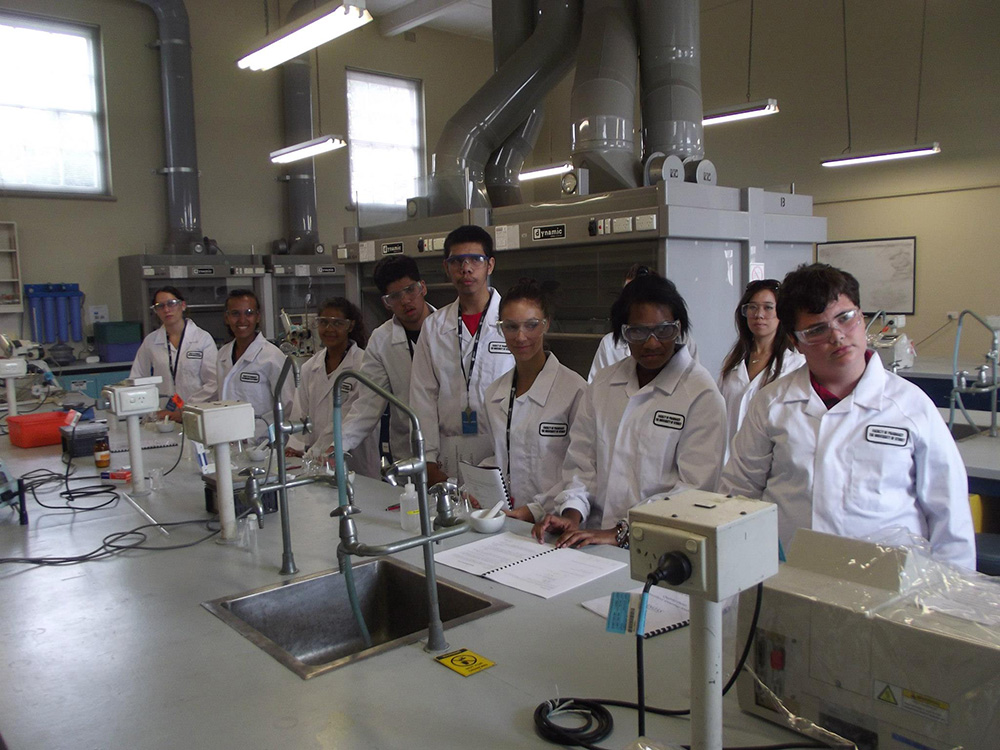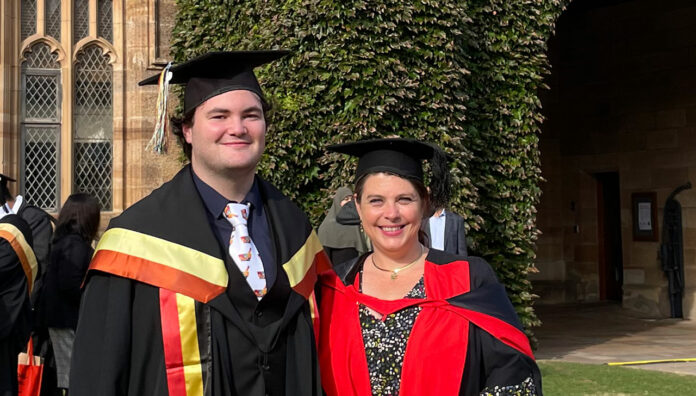To coincide with National Reconciliation Week, PSA is hosting a webinar ‘Culturally safe health care for Aboriginal and Torres Strait Islander peoples – more than just words' tonight (Wednesday 26 May) from 8.30 pm to 9.30 pm (AEST). Click here to register.
Wiradjuri man Alexander Burke MPS recently graduated from the University of Sydney (USYD) with first class honours. Now, he’s on a quest to change how pharmacy students are taught about Aboriginal and Torres Strait Islander health.
Mr Burke’s interest in pharmacy was first sparked when his mother insisted he attend the Sydney Pharmacy Indigenous Camp run by USYD lecturers Rebecca Moles FPS and Nial Wheate.
The camp, designed to give 23 Aboriginal and Torres Strait Islander students an introduction to pharmacy, catered to senior students. But Mr Burke’s mother convinced Associate Professor Moles to let the year 9 student attend.
Experimenting with compounding, learning about different disease states and the career opportunities afforded to pharmacists drew him in.
‘We made a cream and a lotion, and Nial delivered a lecture he gave to third year pharmacy students, an introduction to cancer,’ Mr Burke told Australian Pharmacist.
‘I thought it was a cool profession and from then on I wanted to do pharmacy.’
Mr Burke continued to attend the camps and maintained a relationship with his mentors – eventually winning a place to attend the USYD School of Pharmacy.
‘I’ve just run with the opportunity, and I’m very happy,’ Mr Burke said.
As a student, he has already shown signs of a promising career in public health, devising innovative projects and programs designed to improve the pharmacy profession’s approach Aboriginal and Torres Strait Islander health care.
Born leader
Mr Burke is particularly passionate about using the skills he has developed as a student to help reduce the risk and burden of disease on the Aboriginal and Torres Strait Islander community.
‘We students can work in a pharmacy, but you often don’t get the opportunity to apply the things you learn, such as screening methods,’ he said.
‘I thought, why don’t we do a screening day at the university during NAIDOC Week directed towards Aboriginal and Torres Strait Islander people.’

The screening services included a diabetes questionnaire, heart and blood pressure monitoring, spirometry measurement and inhaler technique counselling.
While the clinic was put on hold last year due to COVID-19, he hopes to pick it back up again post-pandemic.
Not satisfied with how Aboriginal and Torres Strait Islander health is taught in the current pharmacy syllabus, Mr Burke also thought up a number of ways to change this for his honours project.
‘The idea we thought would work best is to integrate the content across the curriculum, so for each unit, students will have to do something in relation to Aboriginal cultural competency,’ Mr Burke told AP.
‘For example, when students have oral exams in the third year, one would be based on Aboriginal and Torres Strait Islander health conditions,’ he added.
Another key component to Mr Burke’s research was challenging biases.
‘In the first and second year, students would be required to reflect on their own personal biases, and then based on their continued learning throughout the years, monitor how the perceptions have changed,’ he said.
Next steps
While Mr Burke was initially set on doing his intern year in a hospital, when an opportunity arose to begin a PhD while working in community pharmacy, he took it.
‘Whether I get to work in a hospital pharmacy one day or if I stay in community – I definitely see academia as the main path I want to go down,’ he said.
Again, Mr Burke has taken a sweeping approach to his research, with his PhD focused on the co-design of resources in Aboriginal and Torres Strait Islander health care.
‘The last time I checked, there were about 70 self-identifying Aboriginal pharmacists, so I’d like to see that number increase.’
With pharmacy course accreditation now dependent on Aboriginal and Torres Strait Islander-focused content being co-created by these communities, following the release of new guidelines from the Australian Pharmacy Council, Mr Burke’s research will focus on how to put this plan into action.
‘We have written up some grants to try and secure funding, and we’ve divided the project up into a couple of key phases,’ Mr Burke told AP.
The first part of the plan is to talk with people in the community to gauge what they would like to see pharmacy students being taught.
From there, Mr Burke will spend some time in Aboriginal and Torres Strait Islander communities to develop more accurate representations of them in the healthcare system.
‘For example, how someone with asthma might present to a community pharmacy, or how patients with cancer are represented in hospitals,’ he said.
‘It’s really about telling their stories and merging that into a case for people to learn from.’
Looking forward
To improve health care for Aboriginal and Torres Strait Islander people in the long term, Mr Burke would like to see greater representation in fields such as pharmacy.
‘The last time I checked, there were about 70 self-identifying Aboriginal pharmacists [0.02% of pharmacists in Australia], so I’d like to see that number increase,’ he said.
A movement away from the paternalistic view of health care fuelled by misconceptions to a more holistic approach would also be ideal.
‘Despite misconceptions, Aboriginal people tend to drink less, on average, than other Australians. But those who do drink tend to go on higher amounts of binges’, he said.
‘But we know for a fact that they smoke more, so how can we target smoking cessation in a way that more Aboriginal people will actually take on board?
‘It would be great to see some of these health disparities go down in my lifetime.’



 John Jones MPS, pharmacist immuniser and owner of My Community Pharmacy Shortland in Newcastle, NSW[/caption]
John Jones MPS, pharmacist immuniser and owner of My Community Pharmacy Shortland in Newcastle, NSW[/caption]


 Debbie Rigby FPS explaining how to correctly use different inhaler devices[/caption]
Debbie Rigby FPS explaining how to correctly use different inhaler devices[/caption]




 Professor Sepehr Shakib[/caption]
Professor Sepehr Shakib[/caption]

 Lee McLennan MPS[/caption]
Lee McLennan MPS[/caption]
 Dr Natalie Soulsby FPS, Adv Prac Pharm[/caption]
Dr Natalie Soulsby FPS, Adv Prac Pharm[/caption]
 Joanne Gross MPS[/caption]
Joanne Gross MPS[/caption]





